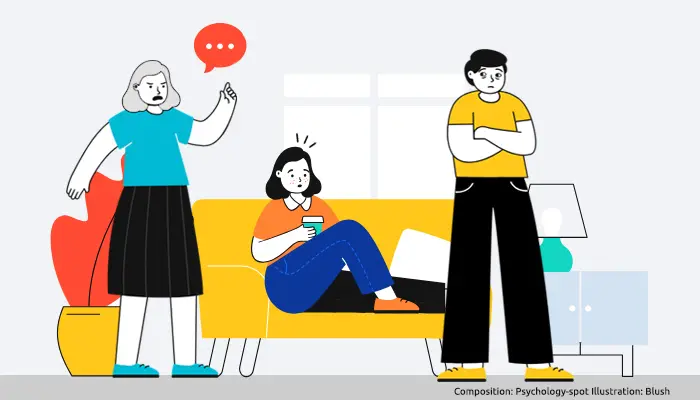
We live in difficult times. Times when it’s easy to lose your temper – and composure – letting hostility and rudeness run wide. Times in which insults have become the daily bread, in all spheres and in all places, transforming disdain and rudeness into a perennial presence that many have accepted – better or worse – in their lives. Times in which we have forgotten the wise words of philosopher Eric Hoffer: “Rudeness is the weak man’s imitation of strenght.”
Researchers at the University of Florida believe that, at least in large part, this phenomenon is produced because hostility and rudeness are contagious, like the flu. In a series of experiments they discovered that people who were insulted or witnessed rudeness, at some point ended up verbally attacking other people.
Uncivil and impolite behaviors often generate a snowball effect. The more we expose ourselves to rudeness and hostility, the more likely we are to perceive them in others and, above all, the more likely we are to be rude and hostile to those around us. The uncivil behavior sows a seed inside us that grows – slowly but inexorably – until it ends up coming to light.
If they have been rude to you, you are more likely to be rude to others
In one of the experiments, participants had to complete a brief 15-minute survey. When they finished, one of the researchers pretended to be a late-arriving participant and asked to be included in the study. In one group, the researcher politely told him that the experiment had begun and offered to schedule it once again. In another group, the experimenter rudely rebuked the participant and told him to leave.
Then all participants had to complete a task similar to a word mix. Some words were positive, like “useful” and others had a hostile component, like “rude.” Interestingly, the people who saw the experimenter behave in a hostile and rude manner quickly detected the hostile and rude words, which means that they were active in their mind.
To check if that sensitivity affected social behavior, the researchers conducted another study. They verified that when people watched a video where an employee behaved rudely with a client, when managing an incident, they wrote more hostile emails.
That means that when we suffer hostile behavior or witness it, in our mind the concept of rudeness is activated, even if we are not fully aware of it. As a result, we will be more likely to rate small media signals as hostile, rude or impolite. That would make us fall into a self-fulfilling prophecy, so we will end up responding ourselves rudely to others.
Rudeness drains us literally
The researchers also discovered a link between rudeness and lower levels of self-control. When someone is hostile and impolite with us, it forces us to spend a huge amount of mental energy destined to discover what is happening. What caused the rudeness? What does this mean exactly?
If someone physically attacks us, for example, we can all notice that it is abusive behavior. No doubt. But if someone tells us: “Take off!”, We will wonder if he has been aggressive or rude or just in a hurry. In social contexts, rudeness is usually ambiguous, so it is open to interpretation.
These thoughts consume cognitive resources, so they end up reducing our ability to control impulses. Therefore, if we have already witnessed rudeness, we will be more likely to be rude and hostile to others, simply because we do not control our impulses. In a way, we make others pay the rudeness or disdain we suffered, sometimes without being fully aware.
The risks of uncivility
Hostility, insults, rudeness and uncivility not only make suffer those who become the target of these behaviors, their consequences go much further, exerting a huge influence on all spheres of our lives.
Uncivility and rudeness can decrease confidence, provoke feelings of anger, fear and sadness and even cause depression. A study conducted at the Singapore Management University revealed that uncivility at work not only generates a large dose of stress but can also cause mental and health problems.
Another series of studies carried out at the Israel Institute of Technology revealed that when medical personnel were subject to impolite and rude comments, they used to make more errors in diagnosis and in the treatment of patients.
The impact of rudeness even crosses the boundaries of the environment in which the event occurred. Researchers at Baylor University found that suffering incivile behaviors at work had implications for personal life, decreasing the satisfaction of the relationship, which is probably due to the fact that we are taking that hostility at home.
Awareness: The antidote to bad education
Due to these investigations, it is clear that rudeness can be contagious, even if we have only been exposed to a single episode. And that anyone, absolutely anyone, is susceptible to this contagion, which will have negative consequences on our interpersonal relationships and worsen our sense of well-being.
To stop that avalanche of hostility, we need to step back and not react by following our first impulses. We need to be aware that we are “bearers” of the hostility we have received, and then recover our ability to self-regulate and be able to respond calmly to the situation, preferably from courtesy and kindness, to break a negative chain and initiate a positive one that generate well-being in others.
Replacing rudeness and impatience with full awareness, courtesy and kindness may not change the world, but it will change our closest world and our relationships. And sometimes, that’s all we need.
Sources:
Woolum, A. et. Al. (2017) Rude color glasses: The contaminating effects of witnessed morning rudeness on perceptions and behaviors throughout the workday. J Appl Psychol; 102(12): 1658-1672.
Riskin, A. et. Al. (2017) Rudeness and Medical Team Performance. Pediatrics; 139(2): e20162305.
Foulk, T. et. Al. (2016) Catching rudeness is like catching a cold: The contagion effects of low-intensity negative behaviors. J Appl Psychol; 101(1): 50-67.
Riskin, A. et. Al. (2015) The Impact of Rudeness on Medical Team Performance: A Randomized Trial. Pediatrics; 136:3.
Ferguson, M. (2012) You cannot leave it at the office: Spillover and crossover of coworker incivility. Journal of Organizational Behavior; 33(4): 571-588.
Lim, S. et. Al. (2008) Personal and workgroup incivility: Impact on work and health outcomes. Journal of Applied Psychology; 93: 95–107.



